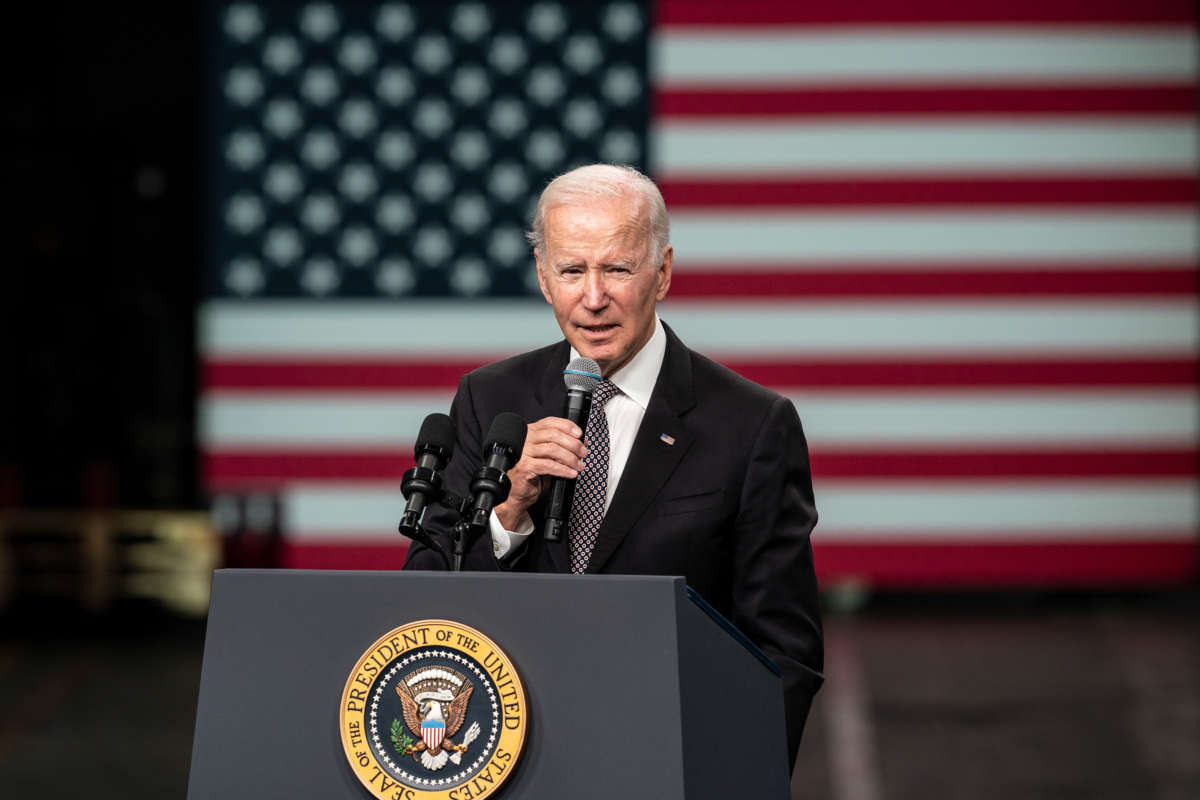On Thursday, President Joe Biden announced pardons for thousands of Americans convicted of simple marijuana possession crimes at the federal level, and said his administration would be taking steps to decriminalize the drug.
“Too many lives have been upended because of our failed approach to marijuana. It’s time that we right these wrongs,” Biden said in a video announcing the action.
The pardons will be limited to around 6,500 individuals who have been convicted of federal possession-related cannabis crimes between 1992 and 2001, as most convictions relating to the drug are at the state level. Biden encouraged U.S. governors to take similar action to pardon residents in their states who have been convicted of crimes relating to cannabis possession.
Though the move will only affect a small portion of the people incarcerated for cannabis-related crimes, Biden said the pardons will have a significant impact.
“There are thousands of people who were convicted for marijuana possession who may be denied employment, housing, or educational opportunities as a result,” Biden said. “My pardon will remove this burden on them.”
Biden also said he will be ordering his administration to take additional steps to decriminalize the drug. Currently, cannabis is classified as a Schedule I drug, the same classification as heroin — an idea that “makes no sense,” the president said.
His announcement acknowledged the racial disparities in the enforcement of marijuana-related crimes. “While White and Black and Brown people use marijuana at similar rates, Black and Brown people have been arrested, prosecuted and convicted at disproportionate rates,” Biden noted.
Biden said he will be directing Health and Human Services Secretary Xavier Becerra and Attorney General Merrick Garland “to initiate the process of reviewing how marijuana is scheduled under federal law” — the first step toward “remedying the harmful racist impact” of cannabis-related convictions, according to Democratic lawmakers who called for the drug to be descheduled almost a year ago.
Despite Biden’s recent shift on decriminalization, he has spent much of his political career escalating the war on drugs and laying the groundwork for further mass incarceration of Black and Brown communities. Most notably, he spearheaded the 1994 crime bill, which included funding for states to build more prisons, encouraged states to increase prison sentences and incentivized police officers to carry out more drug-related arrests.
A recent Morning Consult poll found that 60 percent of voters across the country support making cannabis completely legal. Other polls have shown even higher rates of support among voters.
Although the pardons have been celebrated, some have pointed out that Biden has yet to fulfill many of the promises he campaigned on during the 2020 election season.
“This is excellent,” HuffPost senior reporter Jessica Schulberg tweeted, “and it’s also worth remembering that Biden campaigned on putting an end to incarcerating people for using ANY drug.”
Indeed, the president’s 2020 campaign website shows that Biden promised to “decriminalize the use of cannabis and automatically expunge all prior cannabis use convictions.” He also vowed to “end all incarceration for drug use alone” and to divert individuals convicted of such drug crimes “to drug courts and treatment.”
“Great Biden marijuana news, please do more and other drugs next,” Melissa Gira Grant, writer for The New Republic, wrote on Twitter in response to the pardons.
“The Biden marijuana thing seems legit good,” said Evan Greer, director of Fight for the Future. “Never gonna knock pardoning large numbers of people. Free em all.”
The National Organization for the Reform of Marijuana Laws (NORML) also praised Biden’s action, but noted that he and Congress should do more.
“Moving forward, the Administration must work collaboratively with Congressional leadership to repeal America’s failed marijuana criminalization laws. … Congress should be inspired by the Administration’s actions today to act quickly and send legislation to the President’s desk that would help close this dark chapter of our history,” NORML’s Executive Director Erik Altieri said in a statement.
Notably, there are still tens of thousands of people in the U.S. incarcerated for cannabis-related crimes that Biden’s pardon will not help.
In an op-ed for Truthout, former defense attorney Daniel Muessig detailed his experience being charged for federal crimes relating to cannabis distribution, which were trumped-up by prosecutors in a press release as being connected to other criminal activities he and others were unaware of.
“Every nonviolent cannabis-related indictee was tied into something the public found far more sinister, allowing law enforcement to get their cannabis arrests and cash seizures while minimizing the public backlash that now follows such cases being pursued independent of other criminality,” Muessig wrote.
Join us in defending the truth before it’s too late
The future of independent journalism is uncertain, and the consequences of losing it are too grave to ignore. To ensure Truthout remains safe, strong, and free, we need to raise $50,000 in the next 10 days. Every dollar raised goes directly toward the costs of producing news you can trust.
Please give what you can — because by supporting us with a tax-deductible donation, you’re not just preserving a source of news, you’re helping to safeguard what’s left of our democracy.
